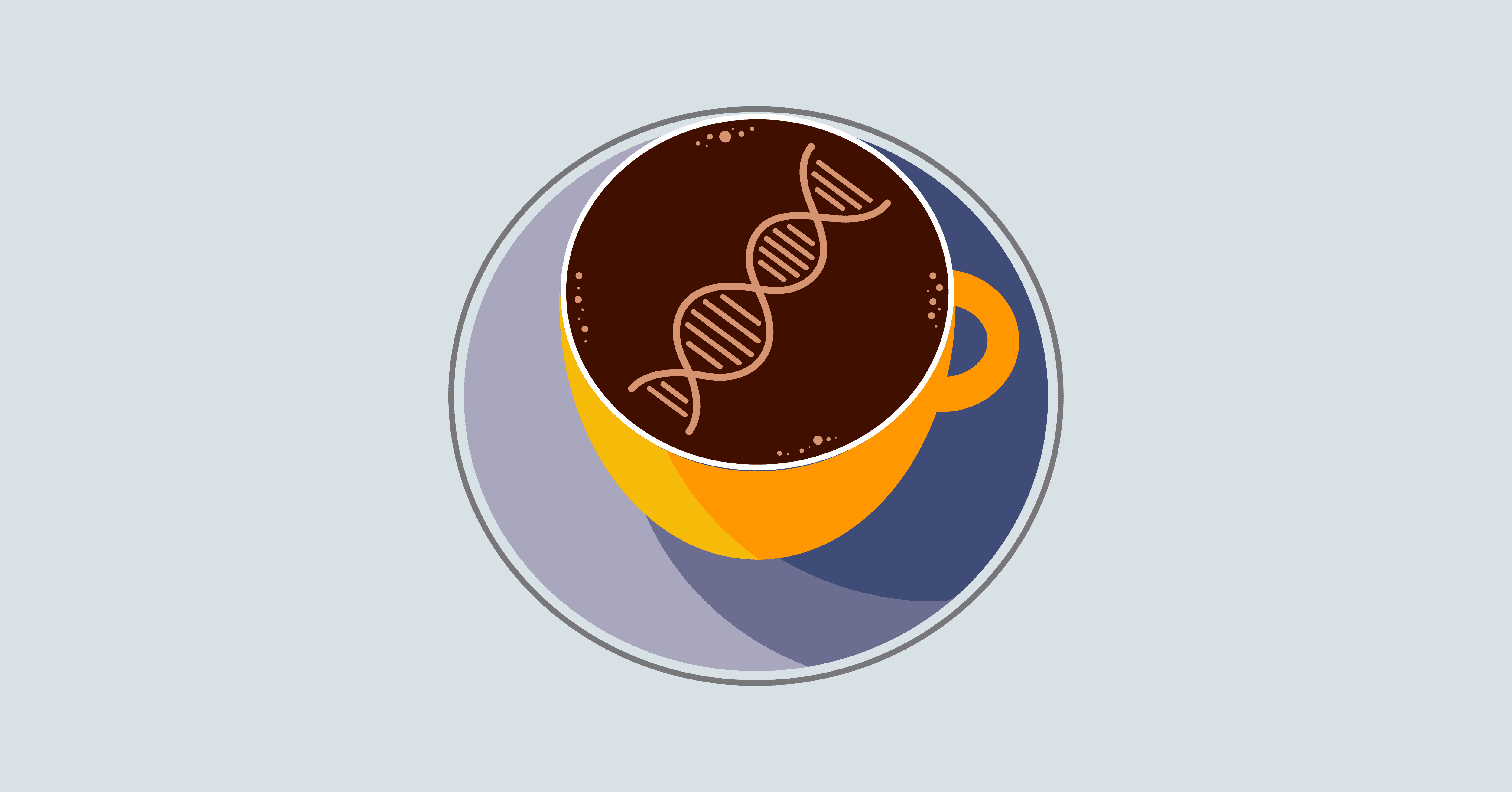Caffeine: The Good, The Bad, and The Genetic Twist You Need to Know.

Caffeine is a widely consumed stimulant that plays a significant role in the lives of many people. From that morning cup of coffee that jumpstarts the day to the afternoon tea that keeps us going, caffeine is undeniably part of our daily routines.
But as with any dietary habit, it's essential to weigh the benefits and drawbacks of daily caffeine consumption to make informed decisions about our health and well-being.
In this blog post, I'll explore the pros and cons of daily caffeine consumption and offer recommendations for determining if it's right for you.
Pros of Daily Caffeine Consumption:
- Increased Alertness and Focus: One of caffeine's most well-known benefits is its ability to boost alertness and improve focus. This can be especially helpful during early mornings or when facing mentally demanding tasks.
- Boost in Physical and Mental Energy: Caffeine provides a quick energy boost, helping us feel more energized and motivated to tackle daily challenges.
- Enhanced Cognitive Performance and Memory: Research suggests that caffeine can enhance cognitive functions, including memory and attention, which may improve overall productivity.
- More Noticeable Effects for Occasional or Non-Caffeine Users: Individuals who consume caffeine occasionally or are new to it may experience more pronounced effects, making it a useful tool in specific situations.
- Most Adults Can Tolerate Daily Consumption: For the majority of adults, moderate daily caffeine intake is generally well-tolerated without any adverse effects on health.
Cons of Daily Caffeine Consumption:
- Potential for Anxiety and Panic Attacks: Some individuals are more sensitive to caffeine and may experience increased anxiety or even panic attacks after consuming it.
- Disrupted Nighttime Sleep: Consuming caffeine too close to bedtime can disrupt sleep patterns, leading to difficulty falling asleep or staying asleep throughout the night.
- Jitteriness and Heart Palpitations: High doses or excessive caffeine consumption can cause jitteriness, heart palpitations, and other uncomfortable side effects.
- Not Recommended for Certain Age Groups: Caffeine is not recommended for children, adolescents, and young adults due to its potential impact on developing brains.
Determining if Daily Caffeine Consumption Is Right for You:
When deciding whether daily caffeine consumption is suitable for you, consider the following factors:
- Assess Tolerance and Sensitivity: Monitor how caffeine affects your sleep, anxiety levels, and overall well-being. This will help you gauge your individual response to the stimulant.
- Consider Lifestyle and Preferences: Take into account your work schedule, daily routine, and personal preferences when deciding on your caffeine consumption habits.
- Experiment with Different Sources and Timing: Try different caffeine sources, such as coffee, tea, or soda, and experiment with consumption timing to find what works best for you.
- Consult a Healthcare Professional: If you have any pre-existing health conditions or concerns about caffeine consumption, seek guidance from a healthcare professional.
Genetics and Caffeine Metabolism: Are You a Fast or Slow Metabolizer?

While caffeine can provide various benefits for many individuals, its effects can vary greatly from person to person due to genetics. The rate at which your body processes and metabolizes caffeine is influenced by specific genes, determining whether you are a fast or slow caffeine metabolizer. Understanding your genetic predisposition can offer valuable insights into how caffeine affects you personally and help you make more informed decisions about your daily caffeine consumption.
Fast Caffeine Metabolizers:
Fast caffeine metabolizers have a genetic variation that leads to the rapid breakdown of caffeine in the liver. As a result, they experience the effects of caffeine relatively briefly and tend to have a lower sensitivity to its stimulating effects. These individuals may be able to consume larger amounts of caffeine without experiencing jitteriness or sleep disturbances. However, it's essential to note that even fast metabolizers can still experience anxiety or other adverse effects if they consume excessive amounts of caffeine.
Slow Caffeine Metabolizers:
On the other hand, slow caffeine metabolizers possess a genetic variation that results in a slower breakdown of caffeine in the liver. As a consequence, caffeine stays in their system for a more extended period, and they may be more sensitive to its effects. Slow metabolizers might find that even small amounts of caffeine can cause increased heart rate, anxiety, or difficulty falling asleep. For these individuals, it's crucial to be mindful of their caffeine intake and avoid consuming it too late in the day to prevent sleep disturbances.
How to Determine Your Caffeine Metabolism:
Discovering whether you are a fast or slow caffeine metabolizer can be achieved through genetic testing. Several companies offer DNA tests that include information on caffeine metabolism genes.
Additionally, self-awareness and paying attention to your body's responses can also provide valuable clues. If you notice that you feel hyper-alert after a small amount of caffeine or that it takes a significant amount to have any effect, these may indicate whether you are a slow or fast metabolizer, respectively.
Tailoring Your Caffeine Consumption:
Once you know your caffeine metabolism type, you can adjust your consumption accordingly to optimize its benefits and minimize potential side effects. Here are some tips:
- Fast Metabolizers: While you may tolerate caffeine well, avoid going overboard. Stick to moderate caffeine intake and be mindful of your body's signals to prevent overstimulation.
- Slow Metabolizers: Limit your caffeine intake and be cautious about consuming caffeine too late in the day. Opt for decaffeinated beverages in the afternoon and evenings to ensure restful sleep.
Recommendations for Safe Caffeine Consumption:
To ensure safe and beneficial caffeine consumption, follow these recommendations:
- Avoid Caffeine Close to Bedtime: Refrain from consuming caffeine within 8 hours before bedtime to promote uninterrupted and restful sleep.
- Delay Consumption After Waking Up: Allow at least 90 minutes after waking up before consuming caffeine to reduce the risk of an afternoon energy crash.
- Limit Daily Intake to Moderate Levels: For most adults, keeping daily caffeine intake between 100 to 300 milligrams is considered moderate and safe.
- Gradually Reduce or Abstain When Necessary: If you find yourself experiencing adverse effects or dependency, consider gradually reducing or abstaining from caffeine to minimize withdrawal symptoms.
Here's the list of approximate caffeine content for some common caffeinated drinks using

- Filter Coffee (240 ml): 95 mg
- Americano (240 ml): 63-154 mg (varies based on the number of espresso shots)
- Cappuccino (240 ml): 63-154 mg (varies based on the number of espresso shots)
- Espresso (30 ml): 63 mg
- Red Bull (250 ml): 80 mg
- Monster Energy (473 ml): 160 mg
- Black Tea (240 ml): 40-70 mg
- Green Tea (240 ml): 30-50 mg
- White Tea (240 ml): 15-30 mg
- Oolong Tea (240 ml): 30-50 mg
- Brewed Chai Tea (240 ml): 50 mg
- Iced Tea (240 ml): 20-45 mg
- Decaf Coffee (240 ml): 2-5 mg
- Decaf Black Tea (240 ml): 2-5 mg
Remember that these values are approximate and may vary depending on the brand, preparation method, and serving size. Always check product labels for the most accurate caffeine content information.
In summary, daily caffeine consumption can offer several benefits, such as increased alertness and cognitive performance. However, it's essential to be mindful of potential drawbacks, such as anxiety and sleep disruption. By evaluating individual tolerance and lifestyle factors, you can determine if daily caffeine consumption aligns with your well-being goals. Ultimately, striking the right balance and making informed choices will allow you to enjoy the perks of caffeine while maintaining your overall health and vitality.